Olly Thompson spent five seasons guiding in the Seychelles. With time spent on Alphonse, Cosmoledo and Astove he’s got plenty of stories to tell about his experiences there. Here’s what it was like, in his own words, to guide in this piscatorial paradise.
At start of the season, after a break of a few months, old friends and fellow guides are a welcome sight. Some you would see on Mahé the night before the internal flight, but most on the island, for a few had already arrived and others were yet to come. Many of us arrive in the Seychelles fair skinned and pasty, I was certainly no exception. The first week always gave my skin a rather rude awakening as the sun when on the water is particularly brutal.
Time is tight before the first guests arrive, there is much to do and prepare. There is no honeymoon period and the season starts with a heavy dose of hard graft. The boats and equipment have been left dormant for several months and are in need of work. Several weeks are spent servicing, sanding and painting, among many other fabulous jobs. A particular favourite of mine was sanding then repainting anti-fouling on the hull. We would be like Smurfs dressed in ragged clothes would stumble to lunch caked in a veneer of blue dust formed from hours of sanding. There was little time to think about fishing but normally we had just enough to explore a few areas. This gave us an idea of how the atoll looked and if any areas had changed in nature during the windy off season.
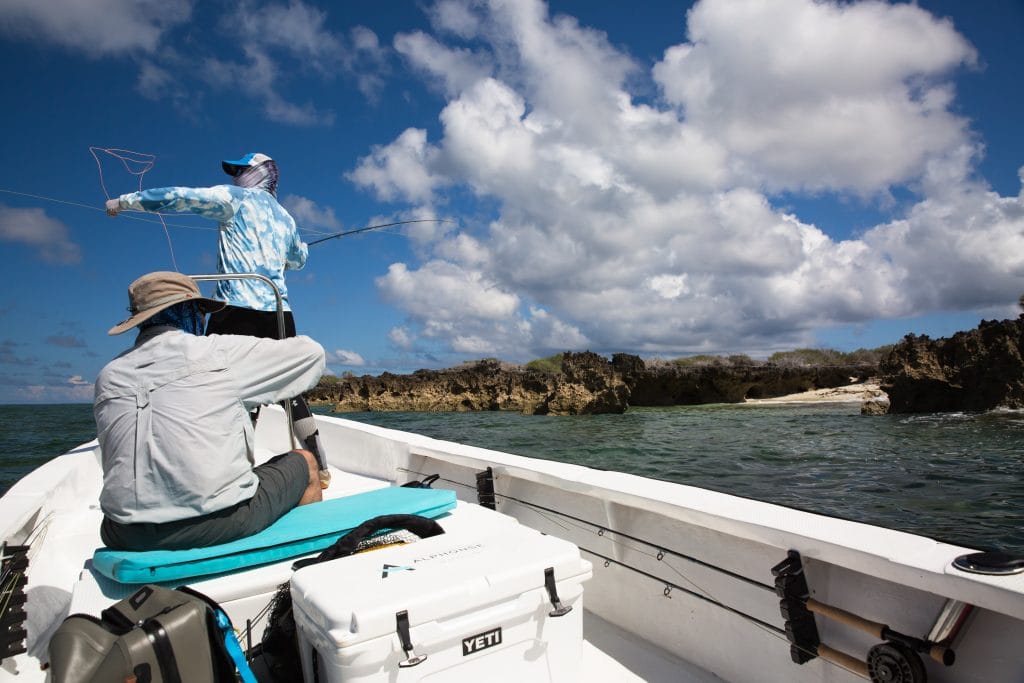
With nervous anticipation and excitement we would greet the first guests of the season. The guide team is hungry to see how the atoll will fish and what secrets will be revealed.
It takes time to settle back into the routine of early starts and long days on the water. Depending on the atoll, preparations for the day may be made before or after breakfast. A slug of coffee and beans on toast would be my standard, this would keep me going until the edge of lunch. During this time, I would deliberate on a plan of attack for the day. Coming from my morning snack I would know my first move and would have a rough idea of the plan to follow. More often than not my ideas would adapted during the day. Certain tides or guests would lead my decision into committing all day moves. Throwing all the eggs into one basket was always risky and meant you could return a hero or zero, but sometimes the juice is worth the squeeze.
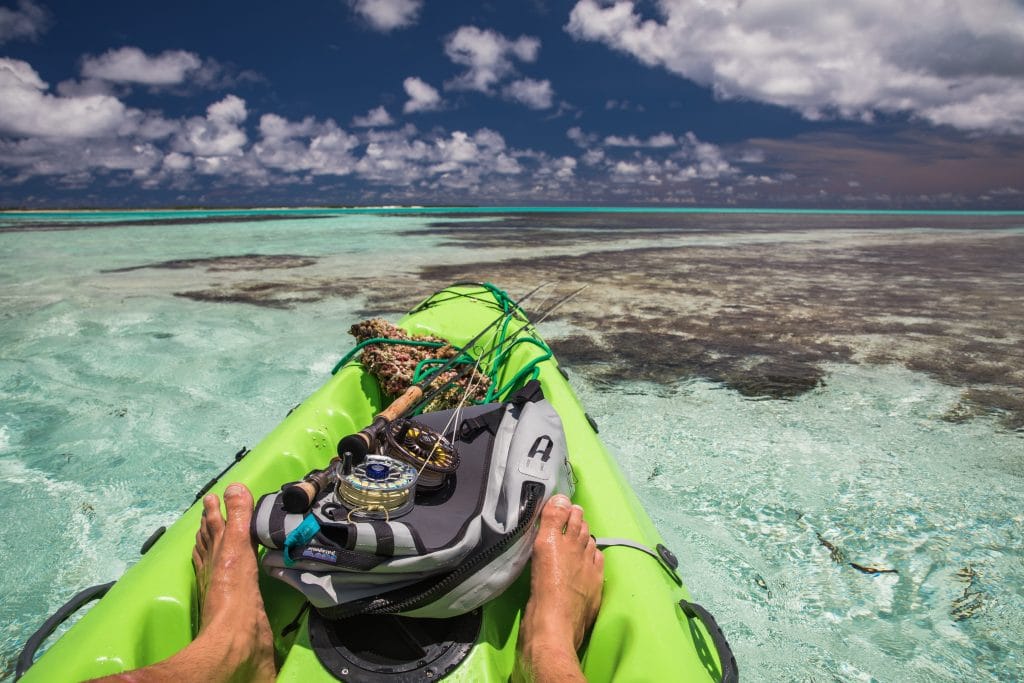
As we carry cool boxes and lunch bags to the beach the sun would slowly begin to ease over the horizon and expose the weather for the day. A greeting of gentle wind and clear skies made preparation that much easier. Rain and cloud, that much harder. The morning commute differs wildly on each atoll. Alphonse; the mothership motors through the Canal de Morte and to St Francois the main fishing atoll. This takes 40 minutes and allows for time to meet the guests and chat and relax with fellow guides. Astove; a Yamaha beach buggy weaves though meandering tracks to the first drop off point. The most fun, I say this with more than a hint of irony, was driving the Mini Mahe skiffs on Cosmoledo. Now Mini Mahe’s are well designed for Cosmo’s large lagoon and provide a fairly comfortable ride for the guests. However, for the guides…. less so. The boats are steered from the stern by a 40hp tiller armed engine. Even the slightest wave hitting the gunnel misses the guests and lands directly in the driver’s face. You are wet from the start.
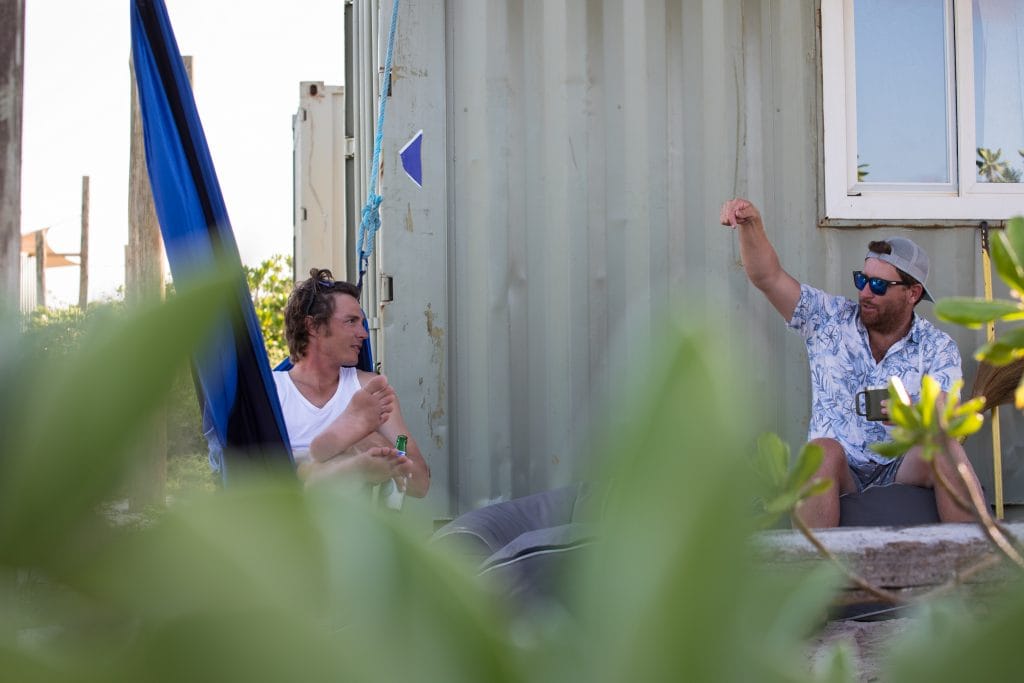
Despite all the poling, heaving, pushing and pulling, some days on the water flow to the end with little effort. You return to land smug with the knowledge that fishing was great, plans worked, and guests are buzzing. Others feel long and frustrating, nothing quite clicked. I can think of very few good guides who don’t take days like these to heart. Most are desperate to catch fish, both for their guests and for themselves. A great day makes the evening beer taste that much sweeter and leaves you with a warm fuzzy feeling.
Time off throughout the season is sparse, so is treasured. It is always a toss-up between taking the opportunity to have a cast or resting in a bid to recover. Often this decision is made by two factors; how many beers did I have last night? Am I covered in cuts and bruises that need resting? If you spend prolonged periods wading in salt water and around sharp coral, you will get cut and it will take a long time to heal. On feeling any sore or infected spots my solution generally involved, a razor blade, a firm squeeze and hydrogen peroxide. Charming, I know.
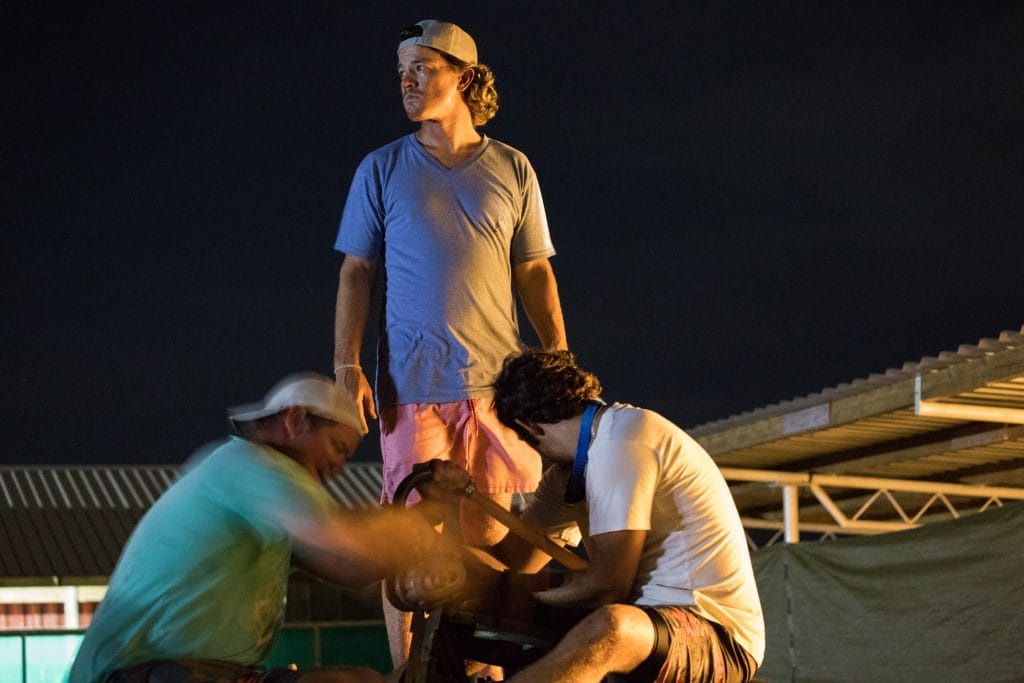
As the season progresses you are kept fuelled by a willingness to catch fish and the companionship of your fellow guides. The periods of guiding that go your way make you feel like a fishing genius, those that don’t can leave feeling you a little grumpy and unfulfilled. There will always be some rather trying points in the season. This may be offloading a barge until three in the morning or hand pumping several tons of fuel because the electric pump is broken. After a few hours sleep the new day starts, and you are rudely awakened by being smacked in the face by wave after wave as you drive the skiff to the first spot. On these days it is important to remember where you are. Despite all of the hardship and lack of sleep you may be standing in warm water waiting for metre plus GTs to surf in on azure blue waves that crash from deep to shallow.
The difficulty of the season is washed away by the camaraderie between great friends and by being in one of the world’s most unique, wild and extraordinary places. I feel incredibly fortunate to have experienced these beautiful atolls and their stunning fishing.
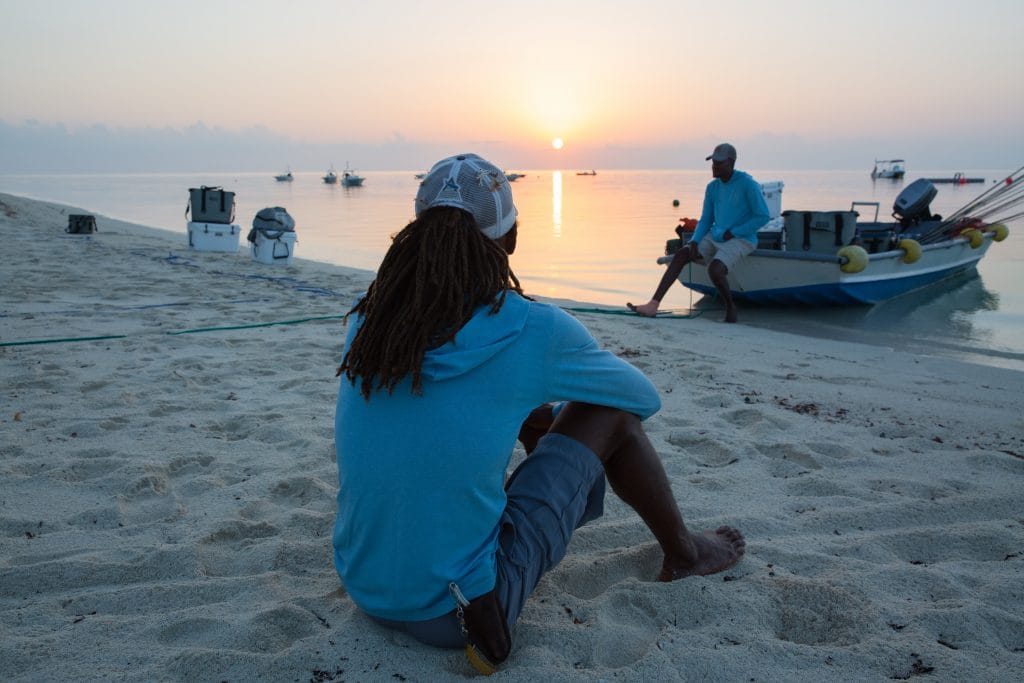
If Olly’s account of guiding in the Seychelles atolls has piqued your interest and you would like more information on fishing here please contact Olly Thompson or Peter McLeod or call us on +44 1980 847389. Alternatively click HERE if you would like us to contact you.
